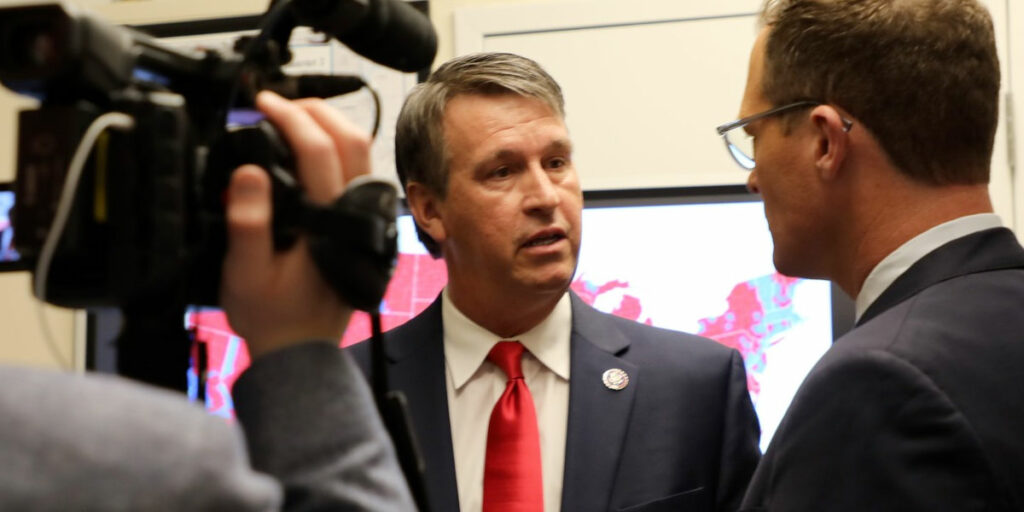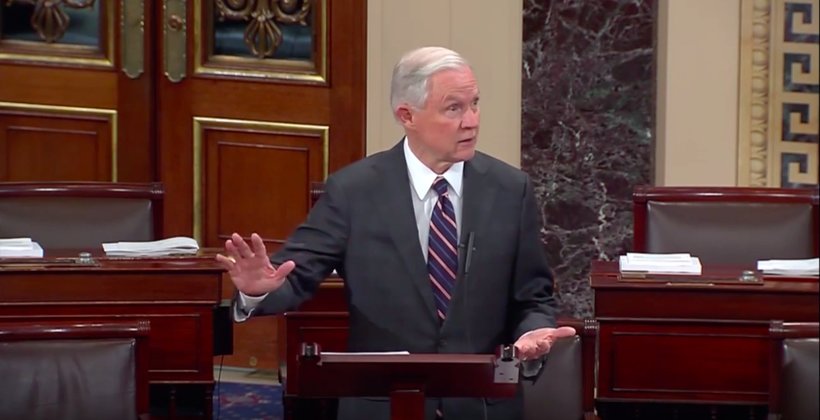
At the outset of the Korean War, President Truman remarked: “Korea is a small country, thousands of miles away, but what is happening there is important to every American.”
This sentiment seems to ring truer today than ever before. After the surprise test launch of an Intercontinental Ballistic Missile (ICBM) on July 4, the threat of violent confrontation with North Korea could be very real. The missile, dubbed Hwasong-14, has the range to potentially reach Alaska- the first serious missile North Korea has tested that could touch down on US soil.
Thankfully, we have a defense against these missiles that has worked exactly as it’s supposed to in recent tests.
As Yellowhammer’s Larry Huff wrote in a related column,
The Ground-Based Midcourse Defense program (GMD)—the only system that can protect the U.S. from the threat of ICBM-delivered nuclear weapons, was developed right here in Alabama, and the GMD must be fully funded and developed to ensure our national security.
Aside from these critical defense systems, after over 60 years of tension with the small volatile nation, the US needs to consider its options to quell a quickly rising North Korean threat.
Conflict with North Korea began in 1950 when then leader Kim Il-sung launched his invasion of South Korea to create a united communist nation. Ten days later, the first US troops arrived on Korean soil, where they stayed and aided South Korea for three years. Though the Korean War technically ended with a cease-fire in July 1953, the North and South have never truly stopped being at war. What endures is a decades long state of armed truce and mutual suspicion.
The US has remained involved in the Korean conflict since withdrawing troops in the 1950s, but to say that the nation has kept North Korea at arm’s length is an overstatement. After the fall of the Soviet Union in 1991, North Korea attempted to reach out to the US, but President Carter flat out denied the olive branch. In a belligerent response, North Korea started its nuclear development program. It has been America’s mission ever since to bring this program to a halt.
In 1993, the US engaged in tense negotiations with North Korea after it threatened to withdraw from the Nuclear Non-Proliferation Treaty. After finally reaching a pact stating that it would stop nuclear development, North Korea secretly continued to work on nuclear weapons. Distrust heightened between the countries when the US discovered this betrayal in 2002. Following the events of 9/11, United States focus was shifted primarily to the Middle East. 15 years later, however, the US must focus once again on the North Korean problem.
Like all complicated political questions, it’s a problem without a clear solution. What is clear is that statements of intimidation from the US over the years, and most recently the vehement words of President Trump, have not been enough. The July 4 test does not seem the action of a government that feels threatened. To confront the growing threat from North Korea, the US needs to take decisive action and embrace a strategy of military readiness and strong diplomacy.
The United States, although wary of North Korea for several years, has had some trouble dealing with the dictatorship as either a tentative friend or a fierce enemy. North Korea is a difficult country to understand—and because of its failings and often absurd actions, an easy country to ridicule. Its lack of communication with the outside world, and the propaganda regime with its rampant lies, present confusion to nations around the globe.
Perhaps the most confounding aspect of North Korean relations is the country’s enigmatic leader, Kim Jong-un. The young North Korean dictator is somewhat of a mystery. There are wild stories of his viciousness, but all the world sees is the smiling, quiet leader ever conscious of his regime’s publicity. Though it’s obvious that he runs a brutal authoritarian machine, it’s unclear what exactly about him is the truth. No one truly knows his age, and he sometimes disappears without a trace for a month. He almost certainly assassinated his own half-brother, and it is speculated that he has killed 60-70 members of the North Korean leadership.Although at times Kim Jong-un and his regime seem completely irrational and insane, what they actually are is desperate, and desperation is importantly different from insanity. The insane will do anything, acting unpredictably and with no regard for themselves. The desperate will similarly do anything, but with one goal- to benefit themselves.
Although at times Kim Jong-un and his regime seem completely irrational and insane, in actuality, they are desperate, and desperation is perhaps more dangerous than insanity. What the United States fears most about North Korea is that it is insane- that it is unopen to negotiation and self-destructive. But if North Korea is desperate, the US can use this desperation to their advantage.
The best hope that the US has in dealing with North Korea is to squeeze it economically and force it to cooperate with other nations to stay alive. Direct military action is nearly unthinkable- millions would be harmed, and China would likely be even more upset about a devastated North Korean peninsula at its borders than a unified capitalist regime there. Rumors have flurried through the years of a possible “decapitation” strategy- the assassination of Kim Jong-un. But this type of violent action seems extreme. The US could agree to limit or completely suspend its military presence in South Korea, but this would not be a desirable move as the US wants to remain powerful in the region. Non-military options, like a cyber strike to curtail nuclear development, may be possible but might be difficult to coordinate.
Economic sanctions seem the most workable solution, for the time being. If North Korea is closed to vital trade, it would be pressured to make amends and stop seeking destructive missiles. China is a key ally for the US in pressuring North Korea, as it is the main source of economic support for the nation.
As noted above, the GMD must remain a priority for the Trump administration, as defensive military action should always be a priority. It’s also critical that the U.S. coordinates a team effort with China, Japan, and South Korea to keep the North Korean threat contained. The United States must remain hopeful that through a mixture of pressure and dialogue, the North Korea problem can be solved with without violent escalation.
 About the Author: Katie Pickle is a clerk at the Reid Law Firm. She graduated from the University of Virginia in 2016 with a double major in English and political science. Katie will begin her second year at Emory University School of Law in August, and she may be reached at [email protected]. For more information about the Reid, Law firm go to www.reidlawalabama.com
About the Author: Katie Pickle is a clerk at the Reid Law Firm. She graduated from the University of Virginia in 2016 with a double major in English and political science. Katie will begin her second year at Emory University School of Law in August, and she may be reached at [email protected]. For more information about the Reid, Law firm go to www.reidlawalabama.com












